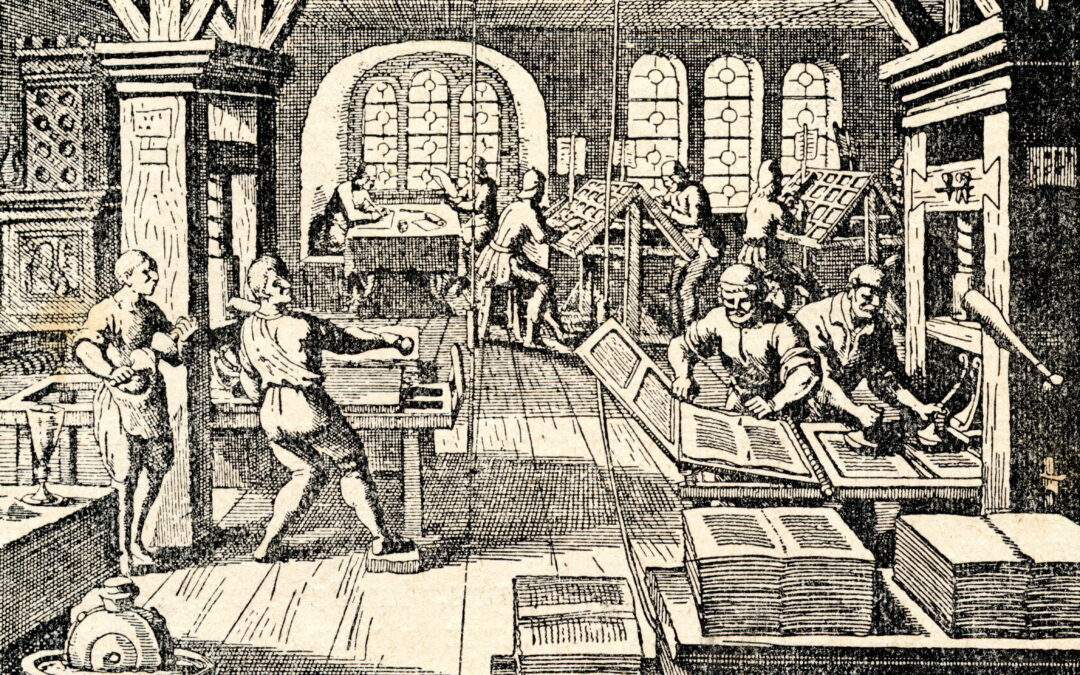The printing press, invented by Johannes Gutenberg in the 1440s, is widely regarded as one of the most transformative innovations in human history. Before its invention, books were laboriously copied by hand, a process that could take months or even years, making them rare and prohibitively expensive. Gutenberg’s movable-type printing press revolutionized this system, allowing for the mass production of books and the rapid spread of knowledge.
Using individual metal letters that could be rearranged and reused, Gutenberg’s press significantly reduced the time and cost of book production. His most famous creation, the Gutenberg Bible, was completed in the 1450s and set a new standard for both quality and accessibility in publishing. The ability to produce multiple copies of a single text allowed ideas to spread faster than ever before, fueling the Renaissance, the Reformation, and the Scientific Revolution.
The printing press’s impact wasn’t just limited to Europe. Over time, similar technologies spread worldwide, enabling the exchange of ideas across cultures and continents. By making books more accessible, the press empowered individuals to learn, question, and innovate.
Today, Gutenberg’s invention is credited with laying the foundation for modern communication. From newspapers to digital publishing, the printing press reminds us how technology can revolutionize society, turning the written word into a powerful agent of change.


